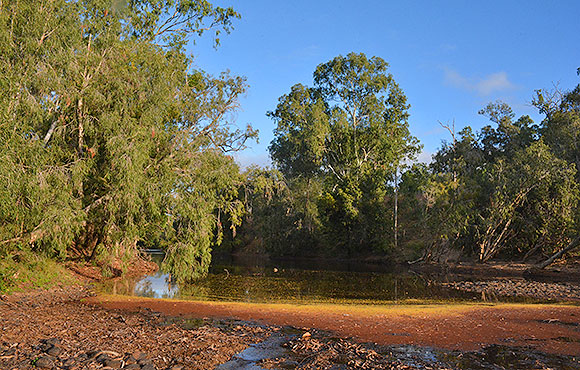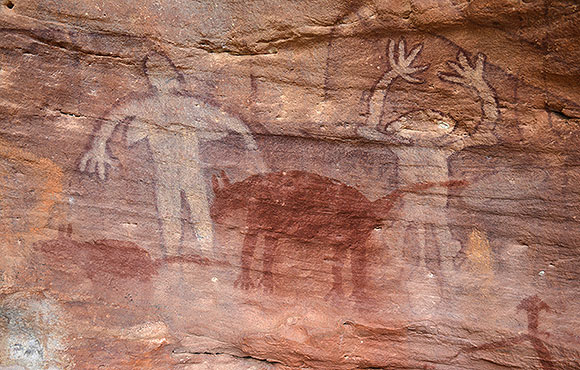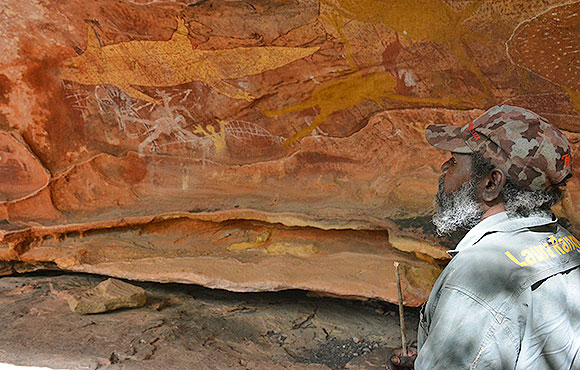Traditional Life In Tune with the Seasons

Traditional owners lived their lives in accordance with the seasonal patterns which governed life in the Laura basin, for thousands and thousands of years.
There are five recognized seasons here, marked by shifting winds, thunderstorms and the availability of different foods. In the Gugu-Yalanji language they are as follows.
- Kamba – Proper Wet Time – December to March
- Kabakabada – Underwater Time – April to May
- Buluriji – Cold Time – June to September
- Wungariji – Hot Time – October to November
- Jarramali – Storm Time – November to mid December
Kamba Proper Wet Time December to March


The wet season rains made travel difficult, so people spent more time together in permanent camps on higher ground. This is when they stayed in the shelters, which are now rock art galleries, high up in the sand stone escarpments.
The wet season was not a time of plenty, the fruits were less varied and harder to find.
Kabakabada Underwater Time April to May
Flooded rivers swept across the lowland plains and became home for swarms of mosquitos. Bush food was hard to find at this time of year and traditional owners relied on stored food, such as nuts and tubers.
Travelling was difficult. It was a time for stories, paintings and maintaining tools.
Buluriji Cold Time June to September
When the rains and floods eased, people made their way back to the plains to disperse into smaller family groups. This was a time of plenty with abundant fruits, vegetables, hunting and fishing.
The native bee hives were full and honey was gathered with delight.
Wungariji Hot Time October to November
As the weather got hotter and the rivers started to dry up, fruits and vegetables become less available. Although yams could still be dug from the earth and meat became a large part of the diet.
Jarramali Storm Time November to mid December
Conditions are hot and humid at this time of year. Water levels are low and rain is scarce. People would be drawn back to permanent rivers and waterholes.